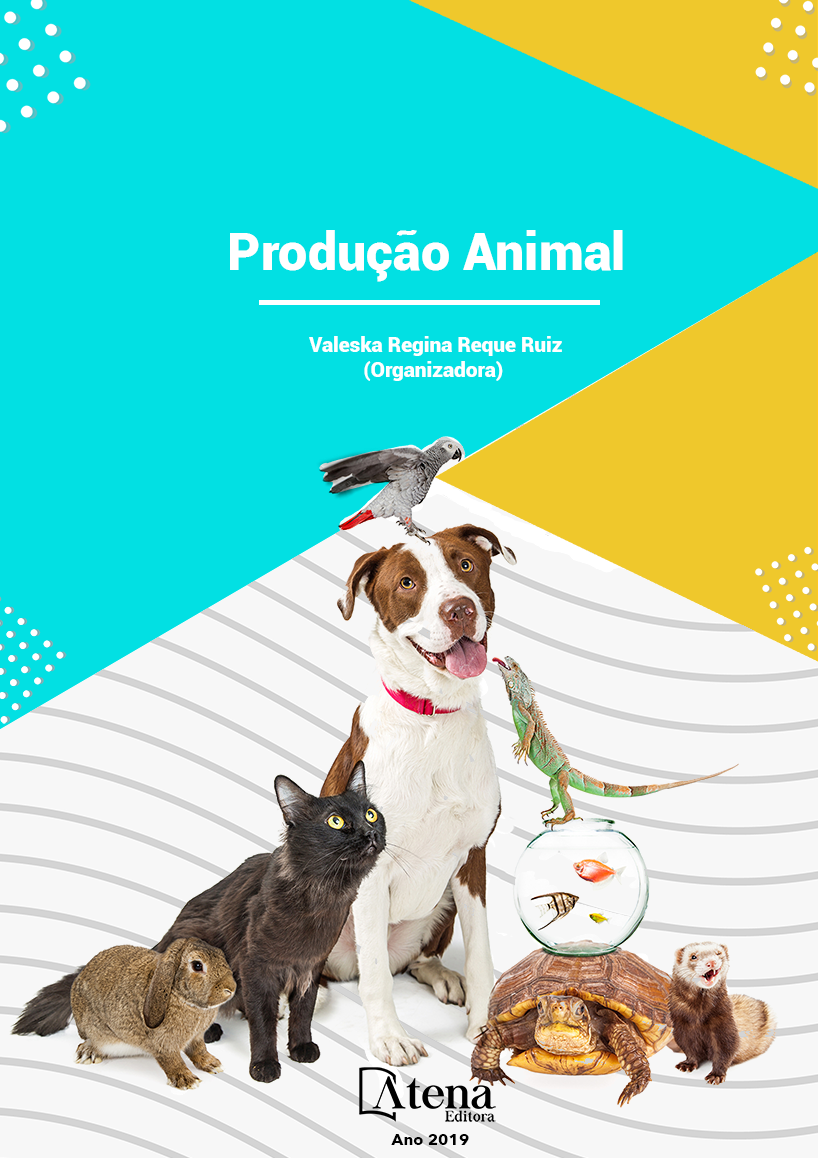
THERMAL STRESS AND ENVIRONMENTAL INFLUENCE ON PHYSIOLOGICAL RESPONSE AND FEED CONSUMPTION IN RABBITS NEW ZEALAND
Objetivou-se avaliar a influencia do
estresse térmico do ambiente de criação sobre
os parâmetros fisiológicos e o consumo de
ração em coelhos da raça Nova Zelândia em
fase de crescimento. O experimento ocorreu
no Módulo Didático-Produtivo de Cunicultura
do Colégio Técnico de Bom Jesus, Campus
Professora Cinobelina Elvas, em Bom Jesus
- PI, com seis láparos com 45 dias. Os dados
foram obtidos nos períodos noturno e diurno
durante 15 dias. Coletaram-se os dados de
Frequência Cardíaca, Frequência Respiratória,
Temperatura Retal e consumo de ração. Avaliouse
o desempenho dos animais através do
consumo de ração. Para as análises foi utilizado
um modelo linear misto no delineamento em
blocos casualizado. As análises estatísticas
foram realizadas pelos procedimentos MIXED
e CORR. A temperatura retal não apresentou
diferença significativa (P>0,05) quanto ao turno,
mas se mostrou com diferença significativa ao
estresse térmico (P<0,05). A alta temperatura
ambiental acelera a respiração e possibilita
uma elevação na temperatura corporal (=
-0,60), consequentemente, o consumo reduz,
visto ser um fator que influencia diretamente
no metabolismo do animal. Constatou-se que
consumo de ração é afetado pelas condições
de estresse térmico que o animal é submetido. O estresse térmico provoca alterações
na temperatura retal dos animais.
THERMAL STRESS AND ENVIRONMENTAL INFLUENCE ON PHYSIOLOGICAL RESPONSE AND FEED CONSUMPTION IN RABBITS NEW ZEALAND
-
DOI: 10.22533/at.ed.6091915047
-
Palavras-chave: cunicultura, ingestão alimentar, Oryctolagus cuniculus, zona de conforto.
-
Keywords: cuniculture, feed ingestion, Oryctolagus cuniculus, confort zone.
-
Abstract:
It was objectifiedto evaluate the influence of thermal stress of the breeding
environment on physiological parameters and feed intake in New Zealand rabbits in the
growth phase. The experiment was carried out in the Didactic-Productive Modules of
Cuniculture of the Technical College of Bom Jesus, Campus Professora Cinobelina
Elvas, in Bom Jesus - PI, with six laparos with 45 days. Data were obtained from the
night and day periods for 15 days. Data were collected from Heart Rate, Respiratory
frequency, Rectal Temperature and feed consumption. It was evaluated the animals
performance through feed consumption. A mixed linear model was used for the analyzes
in a randomized block design. Statistical analyzes were performed using the MIXED
and CORR procedures. The rectal temperature did not present a significant difference
(P> 0.05) for the shift, but showed a significant difference to the thermal stress (P
<0.05). The high ambient temperature accelerates respiration and allows a rise in body
temperature(= -0.60), consequently, the consumption reduces, since it is a factor that
influences directly the metabolism of the animal. It was found that feed consumption
is affected by the thermal stress conditions that the animal undergoes. Thermal stress
causes changes in the animals’ rectal temperature.
-
Número de páginas: 15
- Cecilia Andrade Sousa
- Denise Christine Ericeira Santos
- Natanael Pereira da Silva Santos
- Daniel Biagiotti
- Keytte Fernanda Vieira Silva
- Warlen Oliveira dos Anjos
- Jean Rodrigues Carvalho
- Paulo Henrique Ribeiro Alves


